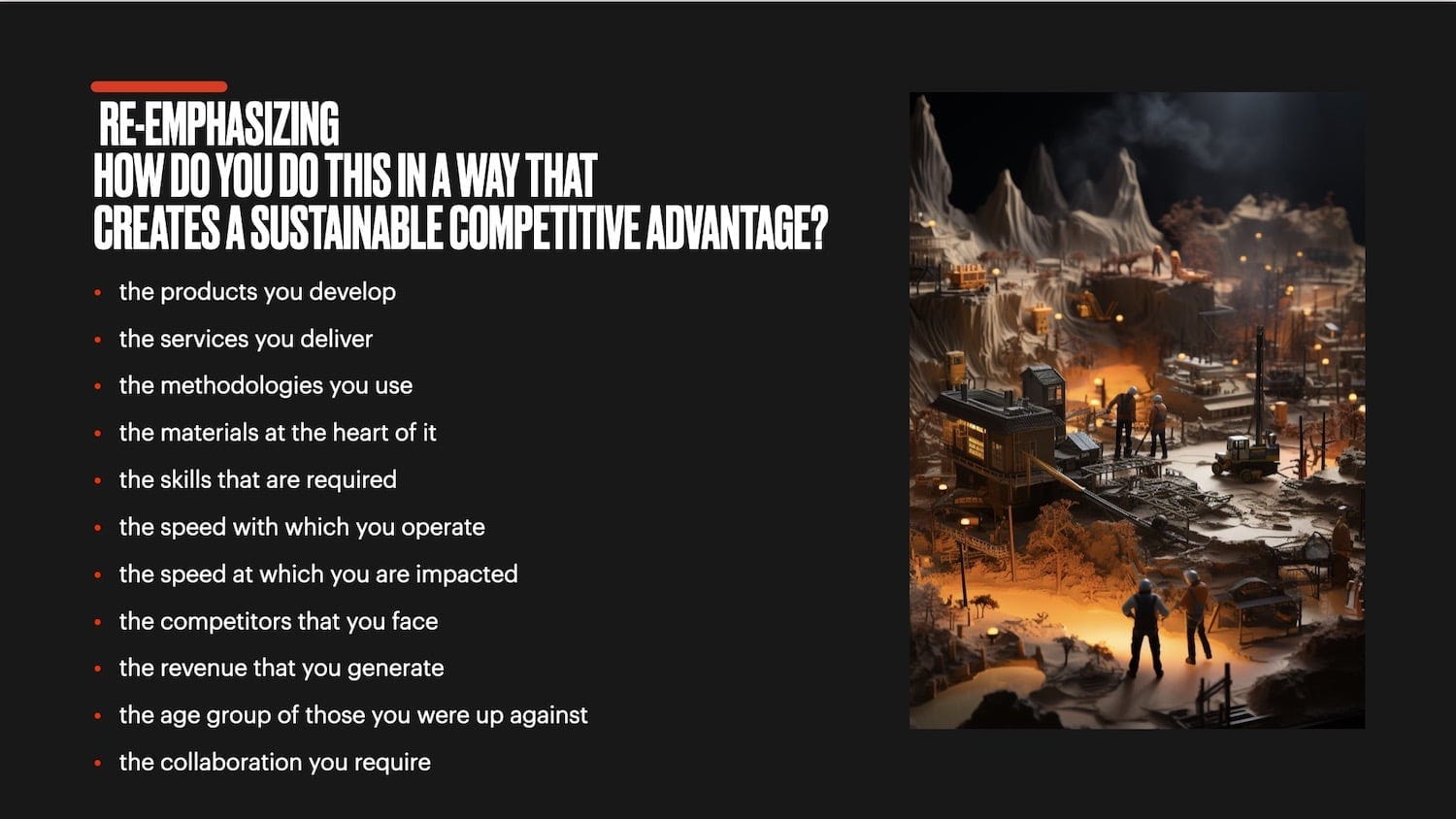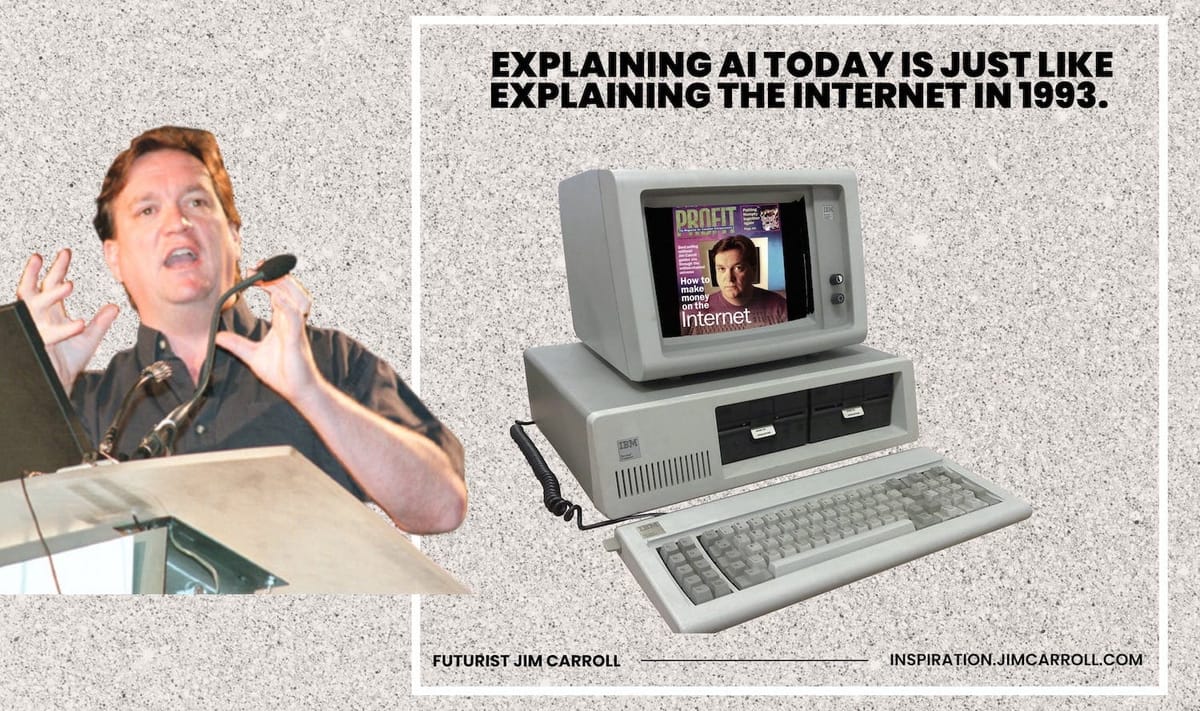My 90s, as some of you know, were WILD. Writing and co-writing 34 books, hosting multiple national radio shows, writing columns regularly for newspapers and magazines, doing HUNDREDS of media interviews, including TV, print, and radio ... and raising a young family with my wife at the same time. Wild.
With stuff like this - an interview in March 1994, one of literally hundreds I did over the years to come. I was out on book tours across Canada and often had 5 TV interviews back to back. Exhausting!
One of the books I co-wrote in 1995 - which followed a Profit magazine cover story profile shortly before which examined the strategic business opportunities of the Internet - went by the awful name of the Canadian Internet Advantage. It was a business strategy book, plain and simple - how could you use the Internet for strategic impact? It opened with this observation:
“....new software and imaginative services are making the Internet one of the most exciting places ever for doing business.”
The Internet - How it will change the way you do business
BusinessWeek, November 14, 1994
Even before you bought this book, you have probably heard much about the wonders of the Internet, and how it will change the world around us.
While you hear a lot of talk about the Internet, you may still not be quite sure what it is or what it represents. You might be confused by the technology that surrounds it, or overwhelmed by the hype that seems to envelope it.
You might be intimidated by the computer technology that makes up the Internet. You want to understand it without listening to computer geeks speak of the wonders of high-speed broadband internetworking or the joys of multitasking. You might want to understand the Internet without getting lost in talk about bits and bytes and RAM and ROM and FTP and Telnet.
You might even be using the Internet already, on a day-to-day basis, but you want a better understanding of what it is really all about. Having ventured into the Internet, you can tell that something important is going on, but you are not quite sure what. You need a clearer picture of where all this stuff is headed.
You have an interest in the network known as the Internet — but to your frustration, no one has been able to explain the strategic potential of the Internet to you.
And so, you want to understand the business opportunities that can be found through use of the Internet. You want to know how it can be used in an educational or government setting. You want to understand its role in not-for-profit organizations. You want to know its impact on scientific research and health care services.
You need to understand the Internet as a strategy, not just as a technology.
Regardless of who you are and no matter what your objectives, it is clear that you need a good, hard and honest look at the opportunities that can be found in the network known as the Internet.
That’s what this book is all about.
* * * * * * *
The mere existence of such a trend is pause for some thought. How will business be affected? Education? Government? Science? Our own personal lives?
No one knows for sure what will happen, but one thing is for sure -- the impact on our world, of a trend in which all computers globally become linked together, will be dramatic.
Substitute 'AI' for 'Internet' - and swap out 'FTP and Telnet' for 'ChatGPT and LLM's' - and it says the same thing.
The book then went on to outline the fact that it would provide 'strategic clarity' around the Internet. Today, I'm using the same phrase - 'strategic clarity' - as I get booked by an increasing number of executives on what is really going on out there.
In the Internet strategy book, we noted the necessity to cut through the hype.
For all the promise that the Internet shows, we need to keep in mind that we are still in the very early stages of a significant development.
This is particularly true when it comes to the use of the Internet for strategic purposes. There has been a lot of talk of late about the significant ‘competitive advantage’ that organizations can obtain by utilizing the Internet.
Like any new technology, we need to be realistic in our expectations of what the Internet can deliver. We need an understanding of its promise without the hype.
In this book, we will provide you with an overview of the Internet without that hype. We will help you understand the role of the Internet in business, education, government and the not-for-profit sector, without getting you lost in the technology. We will put into perspective some of the key activities that your organization can begin to explore in order to understand where the Internet might bring you some benefit.
We’ll talk about the Internet in simple, human terms, and not in technical terms.
I'm thinking about these issues today - and a lot recently, actually - as I head down to Houston to meet with the CEOs of 60 major software companies to talk about the strategic business role of AI. I find myself in the same mindset - there is something massive playing out here, but there is going to be some time for it to all unfold. Meanwhile, some companies are rushing into it blind, chasing a technology without a strategy; the hype machine is in full force; and a lot of foolish mistakes are being made.
Meanwhile, those who think strategically and recognize this is a fast-moving long-term game are the ones who will win.
Back in 1993? We led the same idea with the buzzkill.
The Internet is for the Long Term
As a first step, we’ll be quite frank with you on the benefits of the Internet.
If you get involved with the Internet, you need to recognize that it is a system that can take some time to deliver results.
The Internet won’t dramatically affect your business overnight — the Internet is not a place to ‘get rich quick.’ You won’t instantly become a ‘knowledge expert’, able to access the whole of human knowledge merely by pressing a key — it will take some time to learn how to navigate its massive information sources. Using the Internet for a week or a month won’t dramatically change your skill set such that you are more likely to find a job or opportunity — the Internet will change your skills in more subtle ways.
The Internet promises a lot, but in approaching it, you need to be real in your expectations.
Substitute AI for the Internet in that paragraph, and here we find ourselves today. I will be sharing the same type of message in Houston, with this closing slide:

AI - how do you take advantage of it in a way that creates a sustainable competitive advantage? The bottom line is this - AI is going to change:
- the products you develop
- the services you deliver
- the methodologies you use
- the materials or code at the heart of it
- the skills that are required
- the speed with which you operate
- the speed at which you are impacted
- the competitors that you face
- the revenue that you generate
- the age group of those you were up against
- the collaboration you require
But it's not going to do this overnight, and you need to be strategic in your thinking.
It's 1993 all over again.
It's fascinating.
By the time 1993 rolled around, Futurist Jim Carroll had already been online for more than 10 years.

